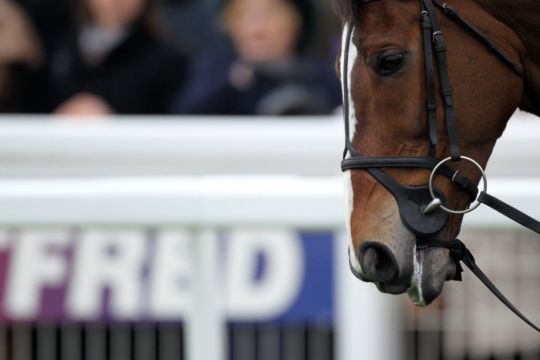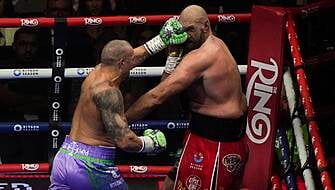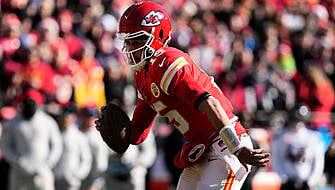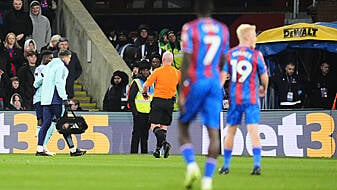A BBC Panorama investigation has established that the majority of 4,000 horses slaughtered in Britain and Ireland over the past two years were Irish-trained.
The British Horseracing Authority (BHA) will hold urgent meetings with the independently-chaired Horse Welfare Board, and other industry leaders, to discuss the content of the investigation.
The BHA will also contact colleagues at Horse Racing Ireland after the Monday night programme, entitled The Dark Side of Horse Racing, broadcast covert footage filmed inside one of the UK’s biggest abattoirs – which it is claimed showed rules surrounding the slaughter of horses being breached.
Reacting to that news on Monday, the Department of Agriculture, which has overarching responsibility for the Irish horseracing industry, told The Irish Examiner that it had “not seen the programme”.
A spokesperson said that they understood the programme “refers to controls at a slaughter plant in the UK, which is a matter for the UK authorities”.
Welfare standards
A statement from the BHA, referencing the welfare standards, read: “This includes transporting horses over long distances to an abattoir, especially if these have injuries, which is not acceptable under the British racing industry’s guidelines for euthanasia.
“The Food Standards Agency, which regulates abattoirs, is responsible for maintaining standards of animal welfare. We would support them if they decide there is evidence of mistreatment of animals which requires investigation, given the public concern that may arise from this programme.
“The British racing industry, and the 7000 and more staff who look after our horses day-in, day-out, across Britain, are proud of the unparalleled standards of love, care, attention, and respect our horses receive. Where end-of life decisions are being considered, we want these to take place in accordance with the euthanasia guidelines developed by the industry’s Horse Welfare Board over the last 12 months. These aim to ensure that horses’ welfare is protected and that all available options for rehoming are examined.
“Our sport has set out its wider approach to equine welfare in a strategy published in 2020, which the programme chose not to highlight. One of the core aspects of this strategy is collective lifetime responsibility, and the report identified the need to further enhance our record in the fields of aftercare and traceability.”
The BHA also stated that significant steps had been taken since the publication of the strategy – including a review and recommendations for the funding of the aftercare sector.
The statement spelled out that industry discussions of the issues raised are set to take place on Tuesday.
It added: “The BHA and other leaders from the British racing industry, including the independently-chaired Horse Welfare Board, will be meeting tomorrow to consider further the issues raised by this programme.
“We will also be in contact with our colleagues in Ireland.”
Horse meat
Another claim in the programme was that contaminated horse meat was finding its way into the human food chain via the fraudulent practice of switching microchips inside horses to evade passport checks which may show an animal had been treated with Bute.
In response, the UK Food Standards Agency said in a statement: “Upholding animal welfare and the safety and authenticity of the food we eat is a top priority for Government.
“The Food Standards Agency and Defra work closely with food businesses and slaughterhouses to ensure that animal welfare is maintained at all stages of food production and that all our food is correctly labelled and safe to eat.
“The FSA has asked Panorama to supply the footage that has been obtained during this investigation. If there is any evidence of mistreatment of animals, they will take action and investigate thoroughly.”
Horse Racing Ireland responded after the programme too, stating: “Horse Racing Ireland unreservedly condemns the practices shown in the images from the Swindon, UK abattoir, portrayed this evening in the BBC documentary Panorama.
“HRI supports calls for an investigation by the relevant UK authority into this abattoir.
“This footage showed both animal and human health issues and is not reflective of the care that racehorses receive in the horseracing industry throughout their lives.”
Trainers
A further statement from the UK's National Trainers Federation also condemned the practices depicted in the covert footage.
It read: “The scenes at the abattoir shown in Panorama tonight were sickening, and the National Trainers Federation (NTF) has no hesitation in condemning those practices. We note that the programme produced no examples of horses trained in Britain suffering a similar fate at this or any other abattoir.
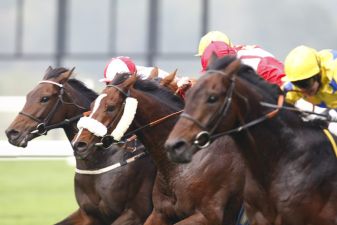
“Britain has a well-established and highly esteemed programme for rehoming racehorses trained in this country. Managed by the industry’s charity Retraining of Racehorses, the programme has successfully expanded the market for racehorses to move on to new careers away from the racecourse. Such is the demand, our trainers tell us that they have no difficulty finding good new homes for retired racehorses.
“Along with all other stakeholders and participants in British horseracing, the NTF fully supports the industry’s Horse Welfare Strategy published in 2020 under the auspices of the independently chaired Horse Welfare Board.
“The strategy notes that ‘Euthanasia can…sometimes be effective in preventing unnecessary suffering and avoiding a welfare problem’.
“British trainers take a responsible and compassionate approach with racehorses that have long-term injuries. If a vet recommends euthanasia, their aim would be to carry it out at the trainer’s premises in a professional and humane way in accordance with the industry’s euthanasia guidelines.”
